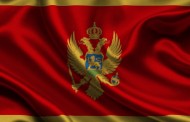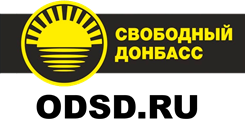Unless Ukraine resolves its political crisis through an early parliamentary election, it may undergo a military coup, disintegrate and become easy prey for Russia, ex-Georgian President Mikheil Saakashvili said in an interview with the Kyiv Post.
Early elections are necessary due to Ukraine’s pervasive corruption, a lack of trust in the political elite and economic stagnation, he said. The next scheduled parliamentary elections are in 2019 — but Ukrainians won’t wait that long, he said.
“When the political class is delegitimized and has such low popularity, the only way out is through elections,” said Saakashvili, outlining his vision for Ukraine. “The next elections will be revolutionary ones because they will get rid of the entire political class.”
As the third anniversary is under way of the EuroMaidan Revolution that forced President Viktor Yanukovych to flee power in 2014, frustration is growing with the authorities’ failure to achieve the revolution’s goals. With top officials’ fabulous wealth in electronic declarations revealed recently and no one punished for large-scale corruption and high-profile murders, society’s patience is running thin.
Saakashvili talked to the Kyiv Post in the office of his newly-created Movement of New Forces, not far from Hrushevsky Street, where violent clashes took place during the EuroMaidan Revolution. Before the interview, he gave a pep talk to his supporters in a brightly lit conference hall of Europe Office Center.
Saakashvili resigned as governor of Odesa Oblast on Nov. 7, accusing President Petro Poroshenko of blocking his efforts to reduce corruption in the region’s law enforcement bodies, civil service and customs – a claim denied by the president’s representatives. Saakashvili, a firebrand visionary who applied his zeal to Ukraine after leaving his native Georgia in 2013, later announced plans to launch a political party in an effort to come to power and replace Ukraine’s political establishment.
While skeptics say there are no preconditions for early elections now, Saakashvili argues that they are inevitable due to public discontent with the authorities. “The post-Maidan government is very sensitive to public opinion,” he said.
Saakashvili also criticized Western governments for opposing early elections in Ukraine, saying that in the West crises were usually resolved through a democratic vote.
He said that large-scale protests were one of the scenarios that could lead to snap elections.
Saakashvili argued that, by failing to reform itself and oust the corrupt political elite through early elections or create rule of law, Ukraine would become an easy target for Russia.
“If Ukraine weakens, it will be very easy prey,” he said. “(Russian President Vladimir) Putin only has to sit on the fence and wait until Ukraine kills itself.”
Saakashvili said that he saw “a real, clear threat of violence” if the crisis was not resolved. “In order to avoid real violence, we need to have democratic process,” he added.
Saakashvili warned that there could be a coup by armed nationalist groups.
“If we don’t have elections, 5,000 armed people can easily take over any government building here,” he said. “No one is going to resist.”
He said that such a coup could be triggered by legislative concessions to Russian-separatist forces in the Donbas and could eventually lead to a “Yugoslav scenario for Ukraine.”
“Then 5,000 people will take over Kharkiv and Odesa, and then these people will start shooting at each other,” he added.
Another challenge facing Ukraine is economic stagnation. Saakashvili said that, if Ukraine’s economy grew at the rate forecast by the government, it would only get back to the pre-EuroMaidan level in 15 years.
“I don’t think people have patience for that,” he said. “Ukraine as a state will be under threat of disappearing… We’re facing existential choices right now.”
New generation
Saakashvili said that — given the chance — voters will replace Ukraine’s corrupt political elite with a new post-EuroMaidan generation of reformers. In Odesa Oblast, Saakashvili’s team held competitions to recruit young professionals, including Western-educated ones, as his deputies, district chiefs and customs inspectors.
“They should be given a chance to take over because they have experience of governing but didn’t have time to be corrupted or become part of the system,” he said. “We should elevate these people from the level of trouble makers to that of decision makers.”
Many of the reformers who joined government after the EuroMaidan Revolution have been forced out or quit, citing sabotage of their efforts by Poroshenko and other top officials.
“The second Maidan brought a thick layer of young guys – many of them are here – whom we recruited from all kinds of Western universities,” Saakashili said. “These guys have already gotten a taste of some limited success but also a taste of bitter frustration because they were not allowed to make real change.”
Saakashvili’s party
To propel a new generation of reformers to power, Saakashvili on Nov. 11 announced plans to create the Movement of New Forces.
He said he would not take any money from oligarchs to fund his political project, prompting speculation that a lack of funding would hamper the party.
Yet Saakashvili was confident that he would get enough financial support from small and mid-sized businesses.
Currently, the reformist forces in Ukraine are split between the Movement of New Forces; Hvylia, a project announced in July by Saakashvili’s supporters; the Democratic Alliance, and the Force of the People.
Saakashvili, who has distanced himself from Hvylia, dismissed the idea that the split weakens the reformist movement.
He said that he was still open to cooperating and merging with the other reformist parties. But he said that they were “obssessed with the idea that they don’t need leaders.”
“If there are no leaders, you don’t win and get 1 percent,” he added.
There are currently no ratings of Saakashvili’s new party, while the rating of Hvylia amounted to 1.5 percent as of Nov. 13, according to the Kyiv International Sociology Institute.
Premiership
Saakashvili’s decision to create an opposition party followed his disappointment with Poroshenko, with whom he had been acquainted since they both studied at Kyiv National University in the 1980s.
In September 2015 Poroshenko offered to appoint him as prime minister, Saakashvili said. But Saakashvili said he refused because Poroshenko did not agree to call an early parliamentary election.
A source familiar with the matter told the Kyiv Post that Poroshenko had also changed his mind on appointing Saakashvili. The source, who was not authorized to speak to the press, attributed this to Poroshenko realizing that Saakashvili could be a threat to the corruption schemes of his allies.
Saakashvili said that this scenario was also possible. “Poroshenko was seriously floating that idea (of making him prime minister),” he added. “Maybe it was a game.”
Saboteur-in-chief
Saakashvili said he had talked to Poroshenko two days before his resignation as governor of Odesa Oblast.
“It was very clear that he wasn’t willing to help in Odesa,” he said. “First he stopped to help us in Odesa and then he started to actively sabotage us.”
Saakashvili said he had told Poroshenko: “You are in dire straits. The economy’s bad, people are unhappy, you are facing armed chaos. Who’s going to protect you? You are basically alone and very vulnerable.”
Saakashvili also said Poroshenko had tried to contact him after his resignation, but he had refused to talk.
Drawing parallels with his drive to oust Georgian President Eduard Shevarnadze during the 2003 Rose Revolution, Saakashvili said that he “never talked to him” until he “went to accept his resignation.”
“Poroshenko is part of the same old political class as Yanukovych… What difference does it make for ordinary Ukrainians who rips them off – Yanukovych cronies or Poroshenko cronies?”
Saakashvili also said that Poroshenko was pressuring television channels to prevent them from interviewing him.
The authorities are also considering reaching a deal with Bidzina Ivanishvili, the leader of Georgia’s ruling party, to strip Saakashvili of his Ukrainian citizenship and extradite him to Georgia, he added. In his native country, Saakashvili faces embezzlement and abuse of power charges that he believes to be fabricated and political.
Poroshenko’s press office declined to comment.
Stymied reform
One of Saakashvili’s associates, National Police Chief Khatia Dekanoidze, resigned on Nov. 14. complaining about political interference and a lack of authority to bring about radical change.
“Poroshenko agreed to the reform of the patrol police but he was not willing to reform the back office of the police because that’s where real political control is,” he said. “When the real leverage started, he did not want to give up an inch of it.”
He also said that the ongoing judicial reform was a “way for Poroshenko to take control of the judiciary.”
“At face value, it looks good,” he said. “But if you look at who’s selecting (new judges), it’s different.” Poroshenko’s top allies Ihor Kononenko and Oleksandr Hranovsky have been accused of controlling the selection of new judges, though they deny it.
He also suggested replacing most of Ukraine’s judges and prosecutors with new ones and also hiring foreigners as judges.
Success story.
If Ukraine fails to carry out reforms, it is unlikely to get any assistance from United States President-elect Donald Trump, who has flirted with Russia and said he could accept its annexation of Crimea, Saakashvili said.
Saakashvili, who has been acquianted with Trump for years, said that he would use this acquiantance to promote Ukraine’s interests if he got a position in the Ukrainian government.
“Trump is attracted by success stories,” he said. “And in order to gain his attention, Ukraine needs to be successful… He doesn’t like losers.”
- Будь в курсе последних новостей и интересных статей, подписывайся на наш канал «NovorossiaToday»
- Be aware of the current events and interesting articles, subscribe to our channel «NovorossiaToday»
- Pour ne rien manquer de la derniere actualite et des articles interessants, suis notre chaine Telegram en direct«NovorossiaToday»



